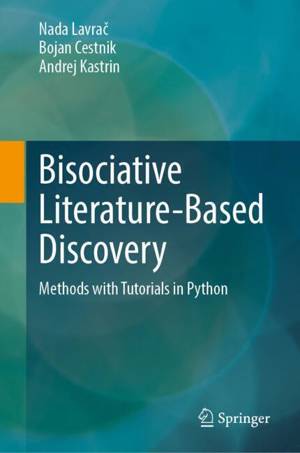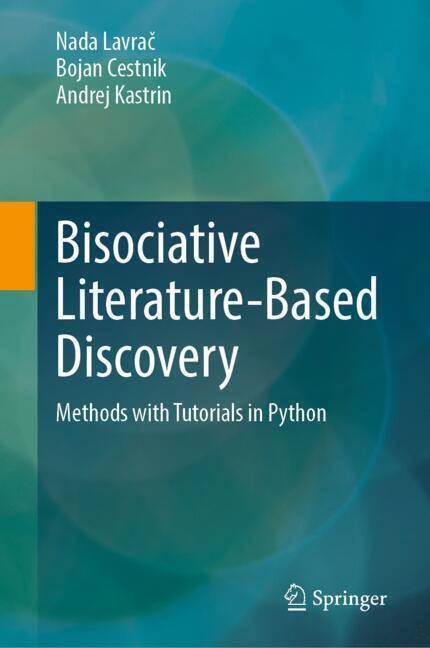
Je cadeautjes zeker op tijd in huis hebben voor de feestdagen? Kom langs in onze winkels en vind het perfecte geschenk!
- Afhalen na 1 uur in een winkel met voorraad
- Gratis thuislevering in België vanaf € 30
- Ruim aanbod met 7 miljoen producten
Je cadeautjes zeker op tijd in huis hebben voor de feestdagen? Kom langs in onze winkels en vind het perfecte geschenk!
- Afhalen na 1 uur in een winkel met voorraad
- Gratis thuislevering in België vanaf € 30
- Ruim aanbod met 7 miljoen producten
Zoeken
Bisociative Literature-Based Discovery
Methods with Tutorials in Python
Nada Lavrač, Bojan Cestnik, Andrej Kastrin
Hardcover | Engels
€ 274,95
+ 549 punten
Omschrijving
This monograph introduces the field of bisociative literature-based discovery (LBD) by first explaining the underlying LBD principles and techniques, followed by the presentation of bisociative LBD techniques and applications developed by the authors. LBD is a process of uncovering new knowledge by analyzing and connecting disparate pieces of information from different sources of literature. Selected techniques include conventional natural language processing (NLP) approaches, as well as outlier-based, concept-based, network-based, and embeddings-based LBD approaches. Reproducibility aspects of bisociative LBD research are also covered, addressing all steps of the bisociative LBD process: data acquisition, text preprocessing, hypothesis discovery, and evaluation. The monograph is targeted at researchers, students, and domain experts interested in knowledge exploration, information retrieval, text mining, data science or semantic technologies. By covering texts, relations, networks, and ontologies, this work empowers domain experts to transcend their knowledge silos when confronted with varied data formats in their research practice. The monograph's open science approach with tutorials in Python allows for code reuse and experiment replicability.
Specificaties
Betrokkenen
- Auteur(s):
- Uitgeverij:
Inhoud
- Aantal bladzijden:
- 173
- Taal:
- Engels
Eigenschappen
- Productcode (EAN):
- 9783031968624
- Verschijningsdatum:
- 8/08/2025
- Uitvoering:
- Hardcover
- Formaat:
- Genaaid
- Afmetingen:
- 156 mm x 234 mm
- Gewicht:
- 439 g

Alleen bij Standaard Boekhandel
+ 549 punten op je klantenkaart van Standaard Boekhandel
Beoordelingen
We publiceren alleen reviews die voldoen aan de voorwaarden voor reviews. Bekijk onze voorwaarden voor reviews.









